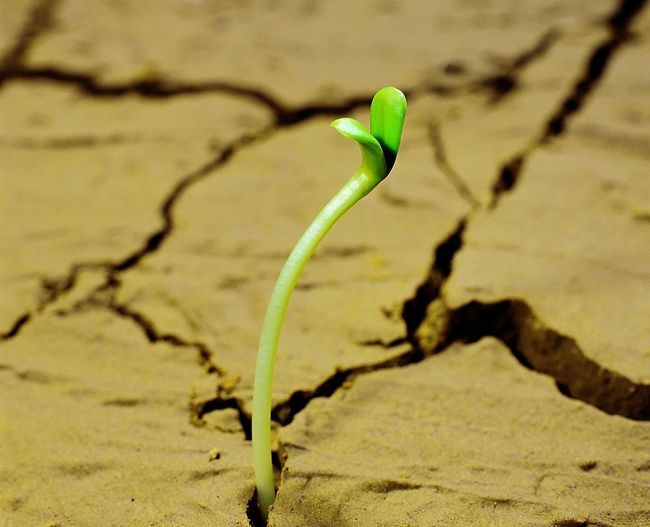今天谈的是resilience,我翻成“复原力”,也有翻成:坚毅力,坚韧力...脸书的首席运营官桑德伯格在她的书《Option B》也提到resilience,那时她正经历丈夫去世的变故,所以提出了这个词。
她说,在遇到伤心事的时候,可以学着像同情朋友一样同情自己,尝试做到:
- 对事不对人。不要因为一件事而否定自己。只要改正错误,避免再犯,就好了。
- 具体再具体。在错误中找到闪光点,以此鼓励自己,越具体越好。
- 每天想想自己的小成功。无论大小,都记下来,以提高自信。
今天是Leo Babauta来讲这个resilience。
Developing Extraordinary Resilience
培养非凡的复原力
By Leo Babauta
(作者)
We’re all beset with difficulties, obstacles, pain, tiredness, and a thousand other setbacks, small and large.
我们都会经历困难,障碍,痛苦,疲倦,以及一千种其他的挫折,或小或大。
What determines whether we take these setbacks in stride, or let them bring us down, is something that psychologists call “resilience.” It’s an ability to come back from setbacks, adapt, learn, but not be dragged down by these setbacks.
那有什么决定了我们能坦然面对,还是一蹶不振,心理学家叫它“复原力。”这是一种从挫折,适应和学习中恢复的能力。
It’s such a powerful thing, resilience … but how do you develop it? Because make no mistake: it’s a set of skills, a set of capacities, that can be developed over time. Some people might be born with greater tendencies toward resiliency, but we can all get better at it.
复原力,它是如此有力量。但是如何培养呢?毫无疑问:它是一套技巧,一套能力,能够通过实践习得。有些人可能生来有较强的复原力,但所有人都可以更好地掌握它。
I’m going to offer a set of practices that you can work on, if you want to develop extraordinary resiliency. I hope you find them useful.
如果你想要培养非凡的复原力,我将要提供一套可操作的练习。希望你觉得它们是有用的。
The Resiliency Practices
复原力练习
Whenever you face stress, difficulty, grief, pain, struggle, setbacks, failure, disappointment, frustration, anger, uncertainty (big ones or little ones, throughout the day) … see it as an opportunity to practice.
无论何时,当你面对压力,困难,悲伤,挣扎,阻碍,失败,失望,沮丧,愤怒,犹豫(一整天或大或小的)...都把它视作练习的一次机会。
Here are some practices you can try:
Notice what you’re not seeing. When you’re frustrated, disappointed, bored, etc. … it’s because you’re only seeing the lack. Or the “bad” side of things. That means you’re blinding yourself to the whole picture — in this moment of someone being rude to you, do you notice that they are in pain, that they have a tender and loving heart inside of them, that they are in fact a gift? Do you notice your own aliveness, the sunlight around you, the wonderful sounds of the day that surround you? In each moment, there are amazing things to notice, and when we’re focused only on the parts we don’t like, we’re stuck in tunnel vision, and therefore missing out on the greatness of life. What is the amazingness you’re not seeing?
去关注你没看到的东西。当你沮丧,失望,厌倦时,你只会看到不足,或者是坏的方面。你会无视整个局面——此刻某人对你很粗鲁,那你有没看到他们正处在痛苦之中?有没看到他们内在也有一颗温柔和关爱的心?有没看到他们实际上是个礼物?你有没注意到你自己的生活,周围的阳光,周围美妙的声音?在每个时刻,都有美好的事物可以发现,而当我们只关注我们不喜欢的部分时,就会被困在狭窄的视野中,因此错过生活的美好。你又错过了哪些?Tap into something bigger than yourself. As a father, it’s amazing what I’ll go through to help my kids. I’ll put myself through incredible discomfort, if it means protecting them, helping them somehow — and it doesn’t even feel like a sacrifice. Anyone who serves others knows this feeling: when you are doing something for others, the discomfort is just an afterthought. So when you’re facing difficulty, if you can connect your task to the something bigger than yourself, serving others and not just yourself … the diffiulty becomes much more insignificant. In this way, every difficulty can be seen as “no big deal.”
超越自己。作为一个父亲,帮助我的孩子是一件很美好的事。如果我要保护他们,帮助他们,我自己会觉得不自在——但是我不认为我在牺牲。所有服务过别人的人都知道这种感受:当你正在做一件事时,不自在是后面会想到的事。因此,当你面对困难,如果你能跳脱自己,关注别人而不仅仅关注自己...眼前的困难会变得意义重大。这样原来,困难都会变成“没什么大不了的。”Practice compassion (for yourself & others). When you’re in pain, just notice that. Wish yourself peace and happiness, as you would wish peace from the pain for a loved one. If someone in front of you is angry, irritated … wish them peace from the anger as well. Every difficult interaction is an opportunity to practice this key skill.
练习同情(自己或者别人)。当你处于痛苦中,要意识到这点。祝愿自己平静和快乐,就好像希望你的爱人从痛苦中获得平静。如果在你面前的人是生气的,恼怒的...也祝愿他们从中获得平静。每个困难的互动都是练习这个关键技巧的机会。See it as a part of growth. When you face a setback, it’s not the end of the road … it’s a part of it. No journey worth traveling is free of discomfort and setbacks. If we want to grow, we have to go through challenges. So each challenge you face — instead of thinking negatively about it, see the beauty of it being a part of your personal growth.
视为成长的一部分。当你面对一个挫折,并不是穷途末路。只是某一段路。没有不自在和挫折的旅途是不值得去踏上的。如果我们想要成长,我们就必须要经历挑战。因此你面对每个挑战时——消除负面想法,把它视为你个人成长中美好的一部分。Practice flexibility & adapting. Rigidity only brings about frustration. If we can learn to be flexible, and adapt to any changing situation, we’ll not only be happier, we’ll be more successful at whatever we’re trying to do. So when you’re in the middle of a challenging situation, ask yourself how you can practice being more flexible. When you’ve been hit with a failure, ask yourself how you can adapt and get better so that you’re more likely to succeed in the next attempt. See it as an opportunity to get better, to become more flexible in your thinking, to be ever-adaptable and never-extinguishable.
练习灵活性和适应力。固化只会带来沮丧。如果你学会去灵活应对,适应任何变化的环境,你不仅会更加快乐,我们都会更加成功。因此当你正处于挑战中时,问自己怎样能够练习得更加灵活机动。当你被一个失败击中时,问自己,你可以如何去适应它,以便你在下一次会更有可能成功。把它视为让自己变得更好的机会,让思维更加灵活,能够适应一切和永远不会消极。Find the deliciousness, delight, joy. Every uncerain situation, every discomfort and difficulty … contains within it some kind of wonder, some kind of deliciousness, some kind of delight and joy. We just need to find it. Open our hearts up to it. Stop trying to reject it, and instead see it for the first time, as a small child might, and see the wonder that is this moment in life.
发现美好,高兴,快乐。每个不确定的情形,每个不自在和困难...都包含了某种奇迹,某种美好,某种快乐和愉悦。我们只需要去发现它。打开我们的心去迎接它。不要试图拒绝它,而是在第一时间看见它,就像一个小孩那样,去看见生活中的奇迹。See everything as a teacher. Every single thing that comes before you is your teacher. You can reject the lesson and see it as something you don’t want, or you can open your mind to it and figure out how this situation, this person, this setback, is your teacher. Which of the above lessons is it teaching you? Which of the above practices is it giving you a opportunity to get better at? Figure that out, and you’ve unlocked a chance to get better at resilience.
把所有的都视为老师。每个来到你面前的都是你的老师。你可以拒绝上课并且认为它不是你想要的,或者你也可以打开你的心,解决怎么让这个状况,这个人,这个挫折成为你的老师。以上的哪个是在教育你?以上的哪个练习可以让你有机会变得更好?解决它,你就是解锁了一次机会,便可拥有更好的复原力。
In each moment, you have a choice. Do you want to succumb to your difficulties, or wish they would all evaporate … or do you want to be made stronger by them, learn from them, open up to their brilliant lessons and delightful experiences?
在每个时刻,你都有选择。你想要屈服于你的困难,还是希望他们全部消失..或者你想要通过他们变得更加强大,学到更多东西,让自己直面这个极好的课程和令人愉快的体验?
In each moment, you have the opportunity to practice. It’s not easy. But it’s the path of resilience and love.
在每个时刻,你都有机会去练习。这并不容易。但这是通往复原力和爱的必经过程。
总结:如何练习“复原力”
- 跳脱负面,关注美好的事。
- 超越自己,关注他人或全局。
- 练习同情自己或别人。
- 看做是成长的机会。
- 培养灵活性和适应力。
- 相信其中存有奇迹和美好。
- 把它视为上课时间。
